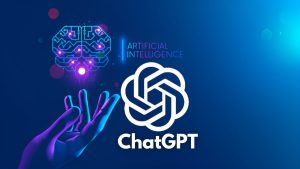Mental health is a crucial aspect of our overall well-being, and the quest for innovative support mechanisms is ongoing. With the advent of artificial intelligence, particularly in the realm of conversational agents, the potential for support in mental health areas has seen significant interest. One such tool at the forefront is free online ChatGPT, which offers unique avenues for assistance. Here's how it contributes to mental health support.
Immediate Support
Accessibility and Availability
ChatGPT stands out by being accessible 24/7, offering a sense of immediacy and availability that traditional therapy settings cannot always provide. This round-the-clock availability ensures that individuals seeking help can find a listening ear, regardless of the time or day. The platform's global reach means that people from various time zones have equal access to support, making mental health assistance more inclusive.
Anonymity and Privacy
One of the most significant barriers to seeking mental health support is the stigma associated with it. ChatGPT offers a level of anonymity that encourages more people to come forward. Users can share their feelings and concerns without the fear of being judged or the stress of social stigma. This anonymity fosters a safe space for individuals to express themselves freely, which is crucial for effective mental health support.
Supplement to Professional Care
Pre-therapy Engagement
ChatGPT can serve as a preliminary step before engaging in traditional therapy. It can help users articulate their feelings, identify their mental state, and even explore the types of therapy or support they might need. This pre-therapy engagement can make the transition to professional care smoother and more informed.
Continuous Support
Even for those already in therapy, ChatGPT can offer continuous support between sessions. It can provide users with coping mechanisms, mindfulness exercises, and emotional support, thus enhancing the overall therapy experience. This continuous support can play a critical role in recovery and well-being.

Educational Resource
Mental Health Awareness
ChatGPT acts as a valuable educational resource, offering information on various mental health conditions, symptoms, and treatment options. This information can demystify mental health issues, reduce stigma, and encourage more people to seek professional help when necessary.
Self-help Strategies
It also offers a plethora of self-help strategies and tips for managing stress, anxiety, depression, and other mental health challenges. By providing these resources, ChatGPT empowers individuals to take proactive steps towards their mental health and well-being.
Limitations and Considerations
Despite its benefits, it's essential to acknowledge the limitations of using ChatGPT for mental health support. It cannot diagnose conditions, provide personalized treatment plans, or replace professional care. Users should consider it a complementary tool rather than a standalone solution.
Conclusion
ChatGPT offers a promising avenue for mental health support, providing immediate, accessible, and anonymous assistance. While it enhances the mental health support ecosystem, it's vital to use it as a supplement to professional care, not a replacement. As AI technology advances, the potential for tools like ChatGPT to contribute positively to mental health support continues to grow, offering hope and assistance to those in need.
